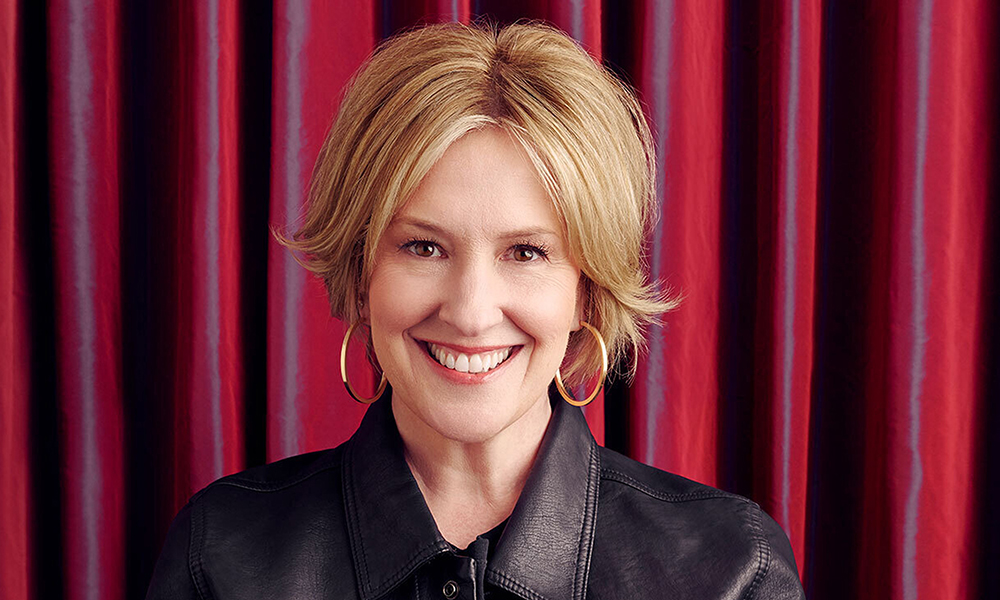
2018年,当布琳·布朗(Brené Brown)为一群空军中队指挥官进行她的首次领导力培训时,她提醒准将们,他们将讨论恐惧和感受。
布朗是《纽约时报》关于羞耻和脆弱的畅销书作者,也是休斯顿大学(University of Houston)的研究教授。考虑到大多数人都被教导不要承认自己的恐惧,她不知道这个话题会引起怎样的反响。然而,他的回答却让她大吃一惊。
布朗回忆道:“他说,‘当你命悬一线时,必须时刻应对恐惧和感受。在空军,除非你对他们有深厚的感情,否则我们不会让你领导任何人。’”
布朗在接受《财富》杂志独家采访时表示:“这就是作为领导者现身并且展现勇气的意义所在。如果你是一名领导者,却没有能力理解和讨论人们的恐惧和感受,那么你未来就不会担任领导职务。”
当今的职场正处于动荡之中,倦怠感和孤独感高发,同时还处于人工智能转型的阵痛期。布朗说,对于任何行业的领导者来说,树立这种心态比以往任何时候都更重要。
她表示:“我知道我们都愿意相信自己是有认知能力的人,只是偶尔会有恼人的情绪,但我们实际上是情绪化的人,偶尔会进行思考活动。”
在2010年的TED演讲“脆弱的力量”(The Power of Vulnerability)获得成功(观看次数超过6500万)之后,布朗为各大机构开发了一套领导力课程。她在勇气培养方面的培训已惠及12万人。
为了推广她的课程,布朗宣布与BetterUp合作。BetterUp是一个虚拟教练平台,由70个国家的4000多名教练组成。该公司与数百家机构合作,并提供有关领导力和管理效率的课程。上周,BetterUp宣布成立“勇气领导力学院”,并任命布朗为执行主席及该公司科学委员会成员。布朗的勇气培养课程将通过该学院提供给BetterUp的会员、客户和教练。
BetterUp的联合创始人兼首席执行官阿列克谢·罗比乔克斯(Alexi Robichaux)表示,现在是为未来的领导者推广布朗培训内容的最佳时机。
生成式人工智能正以多种方式淘汰彼得·德鲁克(Peter Drucker)的基本管理技能,剩下的就是这些“敢于领导”的领导技能。他对《财富》杂志表示:“现代管理和中层管理之所以如此艰难,是因为情绪劳动的比重在增加,但相关的支持和技能却没有增加。情绪劳动就像管理中不可告人的秘密。像韧性、认知敏捷性以及自我同情这样的能力比以往任何时候都更重要。”
韧性和勇气领导力是什么样的?
在与无数《财富》美国500强企业的高管交谈后,布朗说,无论在哪个行业,领导者都希望更勇敢地生活,但却不知道如何去做。
布朗说:“我们知道,勇气是可传授、可观察和可衡量的,但我们也知道,要想实现持久改变,就需要进行深入了解。最具变革性的领导者都头脑清晰,并能很快确定自己的核心价值观。”
布朗在她的研究中发现,企业领导者往往能确定自己的核心价值观,但却不太清楚如何将其付诸实践。
她表示:“我们都知道遵循我们的价值观以及违背我们的价值观是什么感觉。你只能看这么多集《布里奇顿》(Bridgerton)来麻痹那种恐惧,麻痹那种‘我今天怎么会表现成那样?’的感觉。”
布朗的价值观是勇气和信念,她说她可以通过设置一个行动提醒来实现这些价值观:不要谈论别人,而是要与人交谈。
她说:“我们与团队分享价值观,分享遵循我们的价值观以及违背我们的价值观的表现。这是我们文化中很寻常的一部分,尤其是我的直接下属,他们会走过来对我说,‘嘿,这很艰难。我非常敬佩你能践行自己的价值观。’”
布朗说,人们还必须带着好奇心去领导,承认自己不知道的知识,并不断学习。最有权力的领导者有责任改变文化和期望,并优先考虑比利润更重要的事情。她说:“这需要领导者愿意奖励并建立负责任的文化,而不是容忍那些真正让盔甲成为必备品的人。你是否建立了一种让人们可以卸下盔甲的文化?如果没有,那就从这里开始吧。”
布朗告诉《财富》杂志,她并不是要求人们成为心理咨询师,也不是要求人们明天一上班就立即分享自己内心深处的想法。
她说:“你不必像治疗师一样对待你领导的每一个人,但必须关心他们的身份。我们并不是要求个人在工作中变得脆弱。我们要求领导者建立一种文化,在这种文化中,盔甲不会得到奖励,也不是工作生存所必需的。这其中有很大的区别。”(财富中文网)
译者:中慧言-王芳
2018年,当布琳·布朗(Brené Brown)为一群空军中队指挥官进行她的首次领导力培训时,她提醒准将们,他们将讨论恐惧和感受。
布朗是《纽约时报》关于羞耻和脆弱的畅销书作者,也是休斯顿大学(University of Houston)的研究教授。考虑到大多数人都被教导不要承认自己的恐惧,她不知道这个话题会引起怎样的反响。然而,他的回答却让她大吃一惊。
布朗回忆道:“他说,‘当你命悬一线时,必须时刻应对恐惧和感受。在空军,除非你对他们有深厚的感情,否则我们不会让你领导任何人。’”
布朗在接受《财富》杂志独家采访时表示:“这就是作为领导者现身并且展现勇气的意义所在。如果你是一名领导者,却没有能力理解和讨论人们的恐惧和感受,那么你未来就不会担任领导职务。”
当今的职场正处于动荡之中,倦怠感和孤独感高发,同时还处于人工智能转型的阵痛期。布朗说,对于任何行业的领导者来说,树立这种心态比以往任何时候都更重要。
她表示:“我知道我们都愿意相信自己是有认知能力的人,只是偶尔会有恼人的情绪,但我们实际上是情绪化的人,偶尔会进行思考活动。”
在2010年的TED演讲“脆弱的力量”(The Power of Vulnerability)获得成功(观看次数超过6500万)之后,布朗为各大机构开发了一套领导力课程。她在勇气培养方面的培训已惠及12万人。
为了推广她的课程,布朗宣布与BetterUp合作。BetterUp是一个虚拟教练平台,由70个国家的4000多名教练组成。该公司与数百家机构合作,并提供有关领导力和管理效率的课程。上周,BetterUp宣布成立“勇气领导力学院”,并任命布朗为执行主席及该公司科学委员会成员。布朗的勇气培养课程将通过该学院提供给BetterUp的会员、客户和教练。
BetterUp的联合创始人兼首席执行官阿列克谢·罗比乔克斯(Alexi Robichaux)表示,现在是为未来的领导者推广布朗培训内容的最佳时机。
生成式人工智能正以多种方式淘汰彼得·德鲁克(Peter Drucker)的基本管理技能,剩下的就是这些“敢于领导”的领导技能。他对《财富》杂志表示:“现代管理和中层管理之所以如此艰难,是因为情绪劳动的比重在增加,但相关的支持和技能却没有增加。情绪劳动就像管理中不可告人的秘密。像韧性、认知敏捷性以及自我同情这样的能力比以往任何时候都更重要。”
韧性和勇气领导力是什么样的?
在与无数《财富》美国500强企业的高管交谈后,布朗说,无论在哪个行业,领导者都希望更勇敢地生活,但却不知道如何去做。
布朗说:“我们知道,勇气是可传授、可观察和可衡量的,但我们也知道,要想实现持久改变,就需要进行深入了解。最具变革性的领导者都头脑清晰,并能很快确定自己的核心价值观。”
布朗在她的研究中发现,企业领导者往往能确定自己的核心价值观,但却不太清楚如何将其付诸实践。
她表示:“我们都知道遵循我们的价值观以及违背我们的价值观是什么感觉。你只能看这么多集《布里奇顿》(Bridgerton)来麻痹那种恐惧,麻痹那种‘我今天怎么会表现成那样?’的感觉。”
布朗的价值观是勇气和信念,她说她可以通过设置一个行动提醒来实现这些价值观:不要谈论别人,而是要与人交谈。
她说:“我们与团队分享价值观,分享遵循我们的价值观以及违背我们的价值观的表现。这是我们文化中很寻常的一部分,尤其是我的直接下属,他们会走过来对我说,‘嘿,这很艰难。我非常敬佩你能践行自己的价值观。’”
布朗说,人们还必须带着好奇心去领导,承认自己不知道的知识,并不断学习。最有权力的领导者有责任改变文化和期望,并优先考虑比利润更重要的事情。她说:“这需要领导者愿意奖励并建立负责任的文化,而不是容忍那些真正让盔甲成为必备品的人。你是否建立了一种让人们可以卸下盔甲的文化?如果没有,那就从这里开始吧。”
布朗告诉《财富》杂志,她并不是要求人们成为心理咨询师,也不是要求人们明天一上班就立即分享自己内心深处的想法。
她说:“你不必像治疗师一样对待你领导的每一个人,但必须关心他们的身份。我们并不是要求个人在工作中变得脆弱。我们要求领导者建立一种文化,在这种文化中,盔甲不会得到奖励,也不是工作生存所必需的。这其中有很大的区别。”(财富中文网)
译者:中慧言-王芳
When Brené Brown delivered one of her first leadership trainings to a group of Air Force squadron commanders in 2018, she warned their brigadier general that they would be discussing fears and feelings.
Brown, a New York Times bestselling author on shame and vulnerability and a research professor at the University of Houston, didn’t know how the topic would go over considering that most people are taught not to admit to their fear. His response, however, surprised her.
“He said, ‘When your life’s on the line, you have to always deal with fears and feelings. We don’t let you lead people here unless you can have a deep affection for them,’” Brown recalls.
“That’s what it means to show up and have courage as a leader,” Brown tells Fortune in an exclusive interview. “If you are a leader and you do not have the capacity to understand and discuss people’s fears and feelings, you will not be leading in the future.”
Today’s workplace is in turmoil—plagued by high rates of burnout and loneliness, while also in the throes of an AI transformation. Brown says it’s more relevant than ever for leaders, regardless of industry, to model this mindset.
“I know we would all love to believe that we are cognitive beings who on occasion have a pesky emotion, but we are actually emotional beings who on occasion think,” she says.
Following the success of her 2010 TED talk, “The Power of Vulnerability,” which has over 65 million views, Brown developed a leadership curriculum for organizations. Her training in courage-building has reached 120,000 people.
To scale her curriculum, Brown announced a partnership with BetterUp, a virtual coaching platform comprised of over 4,000 coaches across 70 countries. The company partners with hundreds of organizations and offers programming around leadership and managerial effectiveness. This week, BetterUp announced the launch of the Daring Leadership Institute, naming Brown as the Executive Chair and member of the company’s science board. Brown’s courage-building curriculum will be available to BetterUp members, customers, and coaches through the institute.
Alexi Robichaux, cofounder, and CEO of BetterUp, says there’s no better time to scale Brown’s content for the leaders of the future.
“Gen AI is washing out the basic Peter Drucker management skills in many ways, and the ones that remain are these Dare to Lead leadership skills. What makes modern management and middle management so hard today is that the share of emotional labor is increasing, but the enablement and the skills around that are not,” he tells Fortune. “Emotional labor is like the dirty secret of management. Things like resilience matter more than ever. Things like cognitive agility matter more than ever. Things like self-compassion matter more than ever.”
What does it look like to lead with resilience and courage?
After speaking with countless Fortune 500 executives, Brown says that irrespective of industry, leaders want to live more courageously but don’t know how.
“We know that courage is teachable, observable, and measurable, but we also know that for the change to be lasting, we need to go deeper,” Brown says. “The most transformational leaders out there are very clear and can very quickly identify their core values.”
In her research, Brown found that business leaders often identified their core values but were less able to articulate how to operationalize them.
“We all know what it feels like to be in our values and what it feels like to be outside of them. There’s only so much Bridgerton you can watch to numb that fear, to numb that feeling of like, ‘How did I show up like that today?’” she says.
Brown, whose values are courage and faith, says she can operationalize them by one action reminder: Don’t talk about people, but talk to people.
“We share our values with our team. We share what it looks like when we’re in them, and we share what it looks like when we’re out of them,” she says. “It’s a very normal part of our culture, especially my direct reports, to come up to me and say, ‘Hey, that was tough. I really appreciate how you lived your values there.”
People must also lead with curiosity—admitting what they don’t know and continuing to learn, Brown says. The onus rests with the leaders with the most power to shift culture and expectations to prioritize more than the bottom line. “It takes leaders willing to reward and build accountable cultures and not tolerate people who really make armor required,” she says. “Have you built a culture where people can take off their armor? If not, let’s start there.”
Brown tells Fortune she isn’t asking people to become counselors or to go to work tomorrow and immediately share the deeper parts of themselves.
“You don’t have to be a therapist to everyone you lead, but you have to care about who they are as humans,” she says. “We’re not asking individuals to be vulnerable at work. We’re asking leaders to build cultures where armor is not rewarded or required to survive work. There’s a big difference there.”






